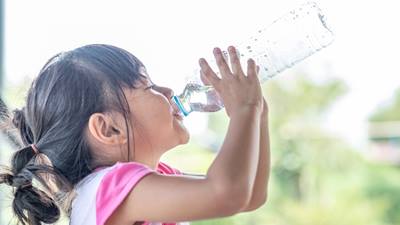Why Children Should Avoid Energy Drinks
Here is a fact all parents should know: Energy drinks have no health benefits for children.
Packaged in colorful cans, energy drinks are commonplace, in gas stations and grocery stores across the United States. They are advertised as a smart choice of beverage to drink when fatigued or in need of a boost. Due to their high sugar content and stimulants (such as caffeine), the medical community discourages parents from letting their kids consume these drinks at all.
How Are Energy Drinks Dangerous?
To begin with, there is a potentially dangerous misconception about sports drinks and energy drinks. Sports drinks are used for the purpose of rehydration after working out and contain no caffeine. While neither beverage is recommended for children due to high sugar levels, energy drinks are far less healthy. Why? Because they contain high amounts of additives such as caffeine, taurine, guarana, ginseng, L-carnitine and yohimbine.
Energy drinks have increasingly become a source of caffeine overdoses, according to a comprehensive study published in Pediatrics. Too much of these stimulants and chemicals can cause dependence, dehydration, insomnia, heart palpitations and/or an increased heart rate in both children and adults. But in children, these symptoms are often even more extreme. Consuming energy drinks has even led to seizures, mania, stroke and death in rare situations.
While these adverse effects can occur even in healthy children with no known health complications, symptoms of consuming too many stimulants also may be magnified in children with existing conditions such as asthma or heart disease. The additives also can negatively interact with certain medications.
No matter how popular they may be, there is no safe amount of energy drinks that a child can consume.
Beyond the most sudden and life-threatening effects of energy drinks, regular consumption of these beverages also can lead to health problems linked to unhealthy amounts of sugar. A single 16 oz. container of an energy drink may contain 54 to 62 grams of added sugar, according to a report on energy drinks from the National Center for Complementary and Integrative Health. This far exceeds the recommended maximum amount of daily added sugars. Children indulging in these beverages are at-risk of developing obesity, diabetes and other diseases.
What Should Children Drink Instead?
While beverage companies may try to convince you that their sugary drinks will give your kids a kick of energy after a long soccer practice or dance class, this sugar is unnecessary and unhealthy. In fact, regular consumption of any sugary drinks—like soda, sports drinks or large amounts of fruit juice—can lead to obesity and diabetes. In most cases, kids should just drink regular water, or pour a recommended serving size of low-fat milk or all-natural juice instead.
For that extra “boost” of energy, consider providing healthy snacks as well. Foods such as sliced fresh fruit, baby carrots or whole- wheat crackers will prevent your child from becoming overly tired or hungry, but without adding any unnatural sugar.
It also is vital to speak with your children about the risk of consuming energy drinks, especially with teenagers who may be purchasing beverages on their own. Myths about these beverages abound—including that they can help you lose weight or stay up studying for a test. In reality, the negative effects far outweigh any good they may claim to do. Given that children are particularly susceptible to the lure of consuming highly caffeinated beverages, consider sitting down and making a list of healthy choices instead.
Lastly, by not consuming energy drinks yourself, you will help protect your children in the future. Energy drinks are unhealthy for you at any age. But for children, the stimulants and high amounts of sugar put their developing bodies at an even greater risk. Modeling healthy behavior for your children now may prevent them from reaching for an energy drink in the future.
Are You Interested in Learning More?
Sign up for our e-newsletter for more tips and best practices from pediatricians.
Sign Up Here





